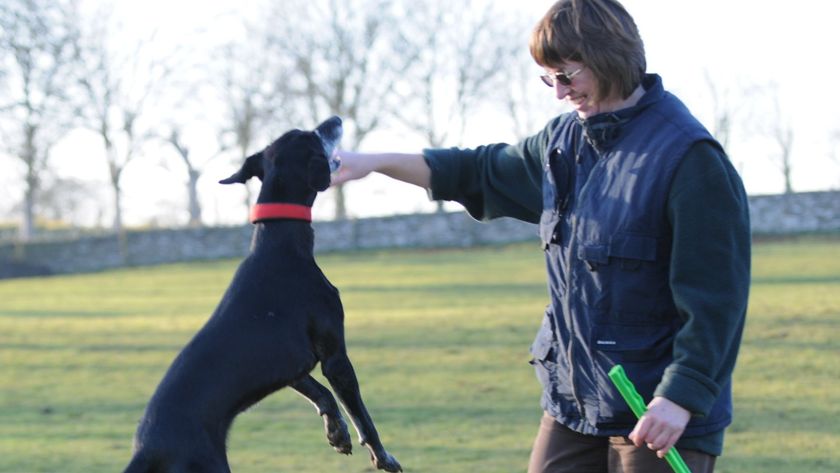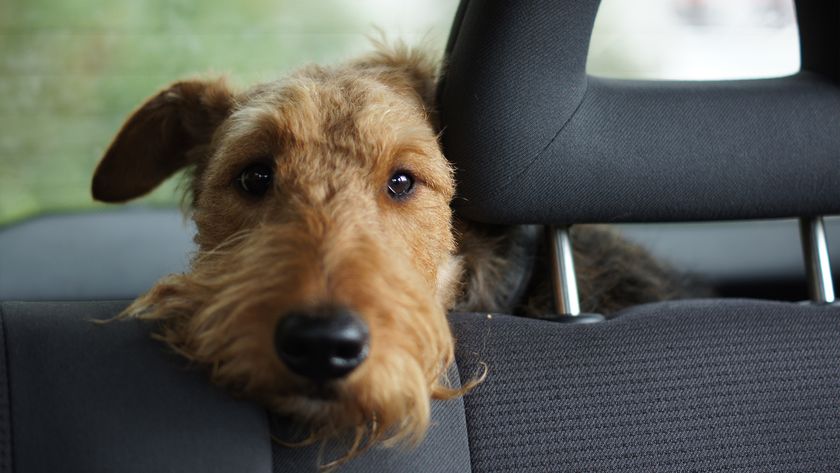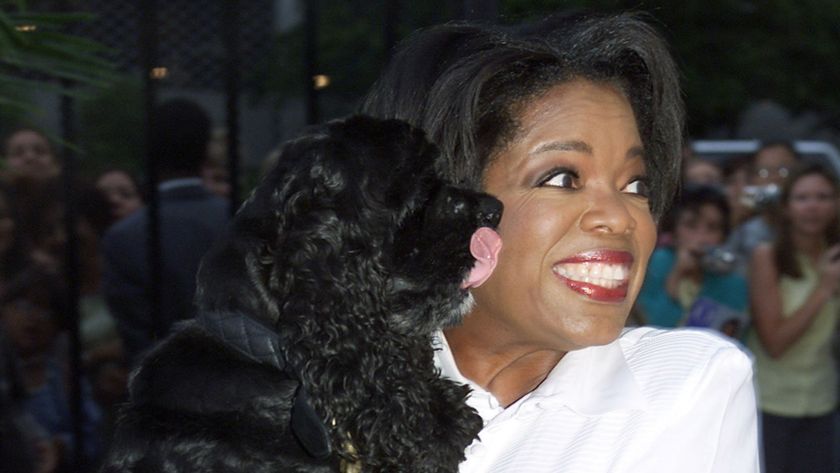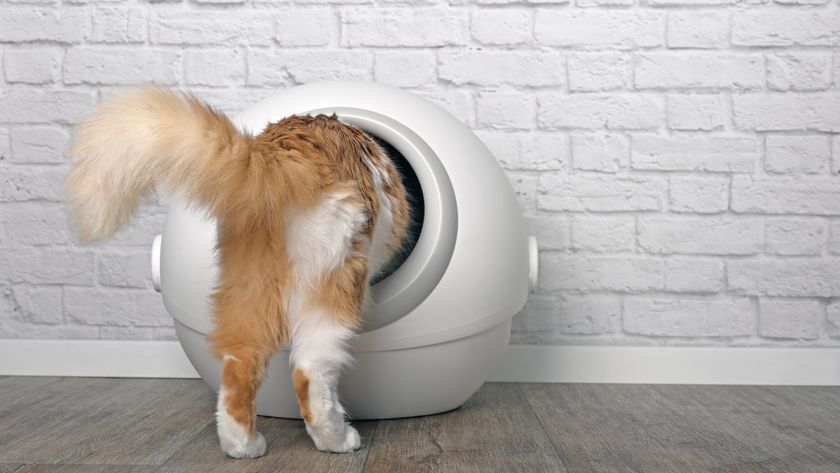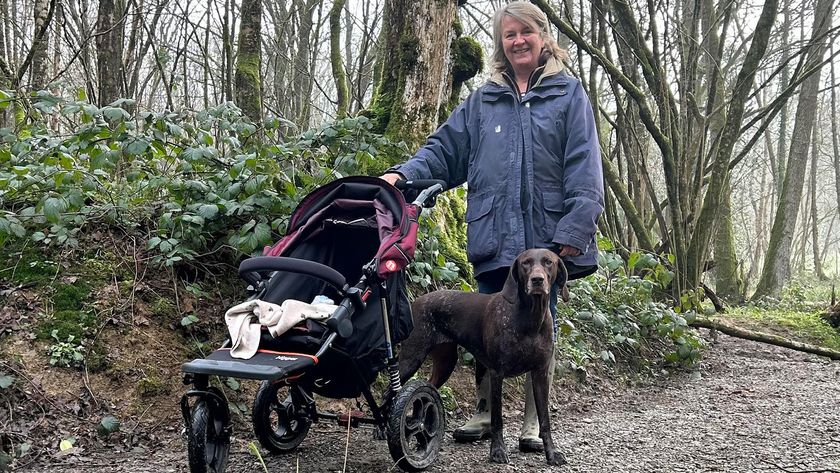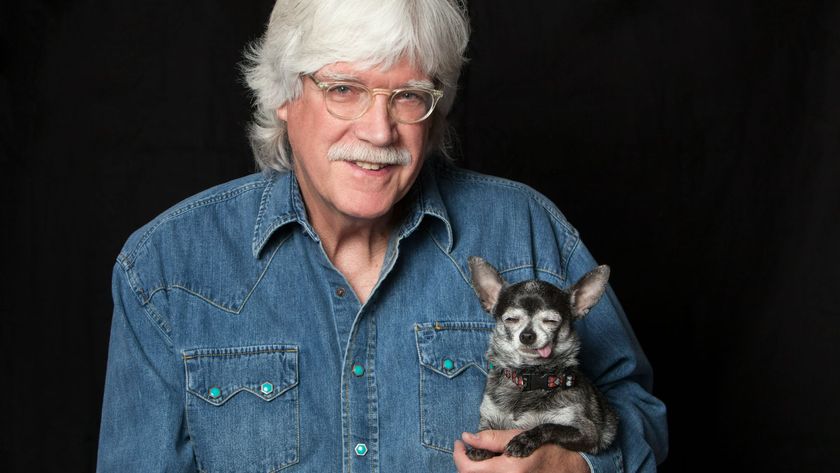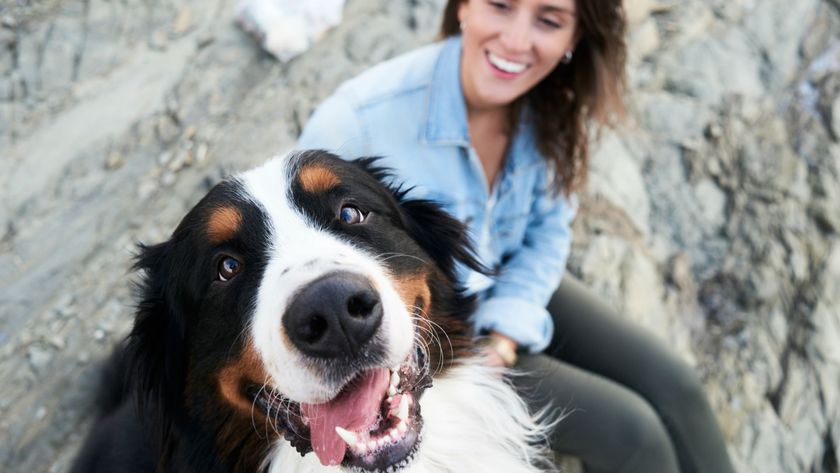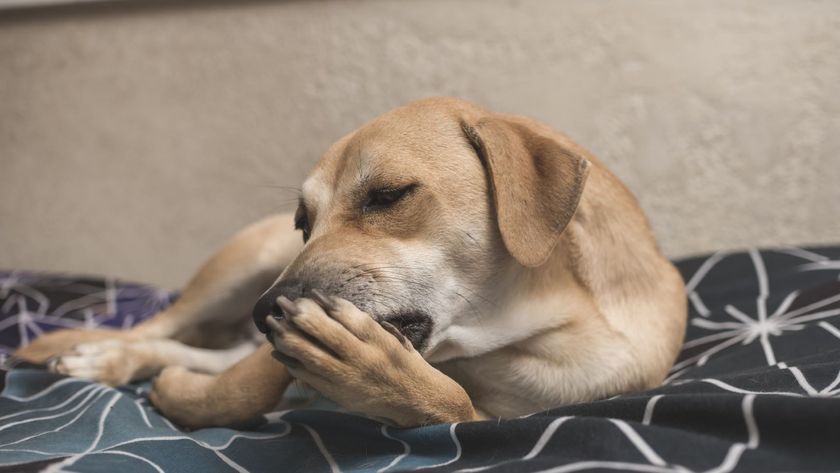Anxiety in dogs
Veterinary nurse shares causes, symptoms, and effective solutions for dealing with anxiety in dogs to help your pet find calm and comfort
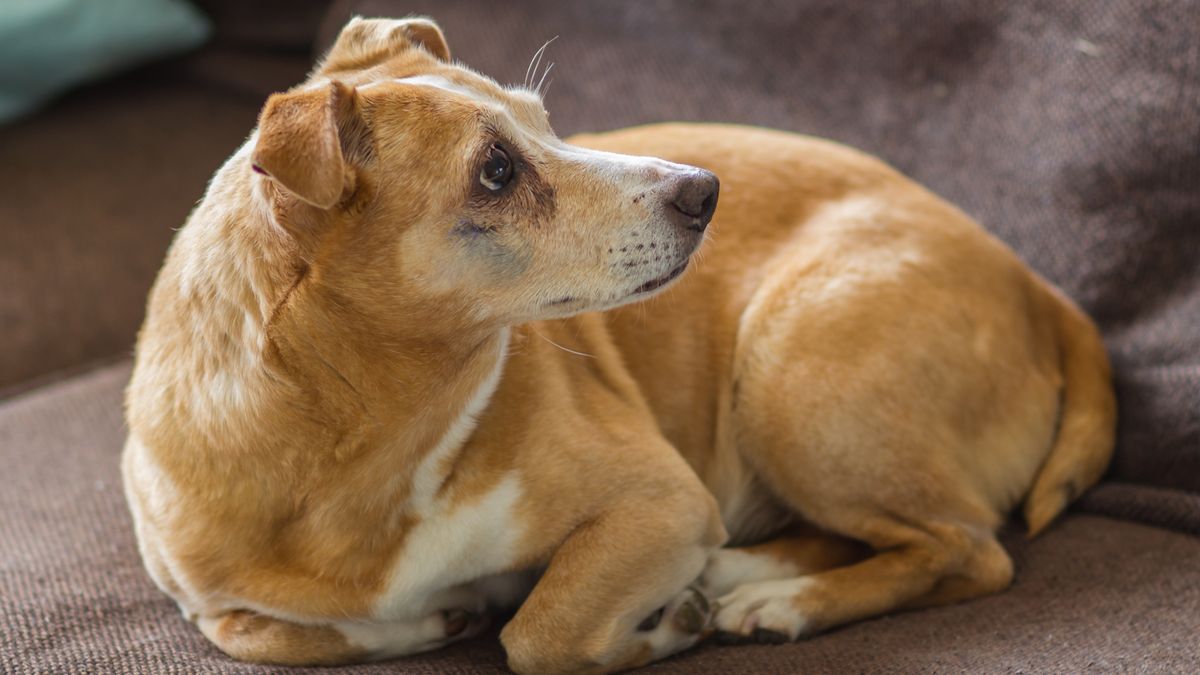
Anxiety appears in many forms and situations and begs the question: is anxiety in dogs now becoming part of a pet owner's daily life?
Unfortunately, anxiety in dogs means an unhappy dog. If, as a pet parent you have ever suffered from anxiety or anxious feelings yourself, you can understand it is most unpleasant.
Anxiety itself is not a condition rather it is in response to something your dog doesn’t like or is fearful of and there could be lots of reasons why your dog is anxious. In an age where stress and fear are becoming increasingly common in dogs and simply part of modern day living, what can we do to understand anxiety in dogs so we can help them?
Whilst it is worth consulting our advice on the longest lasting dog chews to offer distraction and comfort to your doggie, it’s not always straightforward as to where the anxiety is coming from. In order to help treat anxiety in dogs let's ascertain the root cause of it and course correct.

Annaliese qualified as a veterinary nurse from Edinburgh and went on to attain a diploma in advanced veterinary nursing in surgery from London. Annaliese worked in both small and mixed veterinary practices and gained head nurse status. After fifteen years of working in veterinary practice, writing veterinary and pet care books and articles, she opened her pet health spa combining vet healthcare, grooming, pet beauty and retail.
What can cause anxiety in dogs?
The Cornell University College of Veterinary Medicine lists some of the common causes of anxiety in dogs, which we explore in the list below. Should any of these ring true for your dog, it's time to seek help.
Separation Anxiety
A very common form of anxiety whereby dogs become anxious, disruptive and upset when left alone in the house or at places like the groomers. In extreme cases, this can occur by merely leaving the room you are both in. If you think being away from you could be the cause, our vet's guide to how to reduce separation anxiety in dogs has plenty of helpful tips.
Sound Sensitivity Anxiety
Another common cause of anxiety are noises, unusual sounds and loud or high-pitched bangs such as fireworks, thunderstorms, digital equipment and fighting. Here's how to calm your dog during fireworks if this sound is particularly triggering for your pup.
Age Anxiety (Cognitive Dysfunction Syndrome)
This is noted usually in older age due to changes in the dog’s brain function. Disorientation, pacing and restlessness behaviors can all be seen. Their sleep patterns may also be interrupted.
Social Anxiety
This form occurs when your dog has either not been socialized at all or not enough when they were young. They will be happy and perfectly fine around you and other household members but not other people. This can also extend to other dogs and animals.
Rescue Anxiety
Dogs that have come from rescue and adoption centers can be anxious due to fear of abandonment, lack of food, and fear of people or animals.
Guarding Anxiety
Aggression is displayed if another approaches their space, yard, toy, bedding, treats or food. It is experienced by dogs who are anxious the object in question will be taken from them or they feel the need to defend it. Whether it's food aggression in dogs or more general resource guarding in dogs that you're dealing with, speak with your vet who will be able to advise you on the best course of action.
Illness Anxiety
Sometimes health conditions, allergies, itchiness and pain can all cause anxiety in your dog as a secondary issue.
What are the symptoms?
The signs of anxiety in dogs will vary considerably from case to case but it has also been found that owners can underestimate their dog’s fearfulness of household noises, according to research published by Frontiers in Veterinary Science, so keep an extra look out for any of these mentioned below . Which ones your dog will exhibit will depend heavily on the cause of their anxiety, your dog’s character and your lifestyle.
- Panting
- Shaking
- Any form of destructive behavior
- Excessive drooling
- Extra clingy
- Soiling in the house
- Urinary tract infections. Although these are often caused by a bacterial infection, stress and fear can also induce cystitis for reasons unknown.
- Barking/howling/whining/whimpering (to learn more about this, check out our other feature on why do dogs howl at sirens).
- Restlessness/pacing
- Ears pulled back or pinned down
- Pretending to sniff or look at objects. A distraction and delay technique seen when walking your dog outside.
- Whites of their eyes showing
- Licking their lips
- Stiffening their bodies
- Retreating or running away
- Repetitive behaviors such as excessive licking
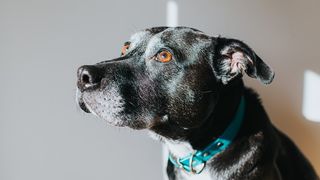
How can you treat anxiety in dogs?
After you have recognized your dog is showing signs of anxiety, or you are suspicious they are suffering with it, you may be wondering the next best steps to take. The following methods are hopefully helpful, but it may be trial and error until you find the right solution.
Visit your Veterinarian
The first port of call is to have your veterinarian check over your dog. This is advisable to rule out any medical issues which may be causing the anxiety. Once the correct treatment is in place, the anxiety should resolve itself if it’s health related.
Should a clean bill of health be the outcome, your vet may suggest a combination of behavior modification techniques, management and/or medication. The type of behavioral strategies and/or medication combinations they can recommend will be dictated by the root cause of anxiety and your lifestyle.
Medication
Anti-anxiety prescription medication is available from your vet which helps to treat the anxiety and calm your dog down. The different options and whether prescription medication is the right route for your dog should be discussed with your veterinarian. Other options include numerous over-the-counter type medications based on appeasing pheromones which have been proven to help and natural remedies. These should also be discussed with your vet, trainer or behavioral specialist prior to purchase.
Behavioral Training and Specialists
An accredited dog behaviorist or trainer experienced in the area you need is an excellent option. They specialize in dog behavior and can sometimes solve the problem in one session using a variety of techniques. Behavioral training can be intense and expensive but usually provides good outcomes. It also offers support to you as the pet parent as anxiety in your dog is stressful for you as it is to them and sometimes, you too, just need to speak to someone. Here's how to spot dog trainer red flags to ensure you're working with a qualified professional.
Noise Desensitization
This is helpful in cases when your dog fears noises like thunder, fireworks or traffic. It uses the theory of slowly and subtly getting them used to noise and uses specific programs and techniques. Your vet or behaviorist can advise on the best approach and type.
Clothing
Special vests (like a tight body t-shirt) are available for dogs and help to soothe and calm your dog by making them feel wrapped up and secure.
Help at Home
Measures can be put in place at home, but these are generally good practices to offer all dogs regardless if they suffer with anxiety or not and are best implemented as soon as possible.
1. Stick to a routine
Ensure walks, potty breaks, feeding time, food amounts, play or cuddle times, treats and bedtime are regular and scheduled at the same time of the day.
2. Have a safe place
Dogs like to have a space where they feel safe and secure, especially during times of worry or concern. This may be their bed or a completely different spot in the house and you may find they run off and find this area themselves.
3. Crate training
Learning how to crate train a dog can be useful at providing a protected space and are especially useful during surprise visits (an unexpected visitor for example) or for riding out certain situations like fireworks or thunderstorms.
Are there Ways to Help Prevent Anxiety in Dogs?
Although it is impossible to entirely prevent anxiety in dogs, as you do not have control over their minds, nervous systems or their past, there are a few gold standards you can follow to help limit it occuring.
- Socialize them as much as possible when they are young or when you become their parent. Expose them to as many different people, ages, animals, places, objects, noises and situations such as vets, groomers and the car.
- Exercise and ideal weight. As with humans, good exercise and correct weight can solve a myriad of physical and mental issues.
- Diet. Be sure to feed a good quality, healthy, and complete diet comprised of the best dry dog food or a wet food alternative.

Anxiety in dogs is a big topic to unravel. Rest assured though, it is common and there is plenty of help and understanding available. Always consult with your veterinarian and act as soon as you notice any signs rather than ignoring it or seeing how it goes … anxiety will only increase, not get better if no intervention is taken.
PetsRadar Newsletter
Get the best advice, tips and top tech for your beloved Pets
Annaliese qualified as a veterinary nurse from Edinburgh and went on to attain a diploma in advanced veterinary nursing in surgery from London. Throughout this time, she worked in both small and mixed veterinary practices and gained head nurse status. Responsible for training other veterinary nurses she also ran the nursing department, nurse clinics, and patient care protocols.
She has looked after 1,000s of patients and owners and created new higher standard nursing regimes, whilst specializing in surgery and anesthesia. After being asked to co-author multiple veterinary nursing textbooks, Annaliese continued to write for further mainstream publications in the UK and USA and after twenty-plus years in both the veterinary and pet care professions, she hung up her scrub suit and now writes full-time.
